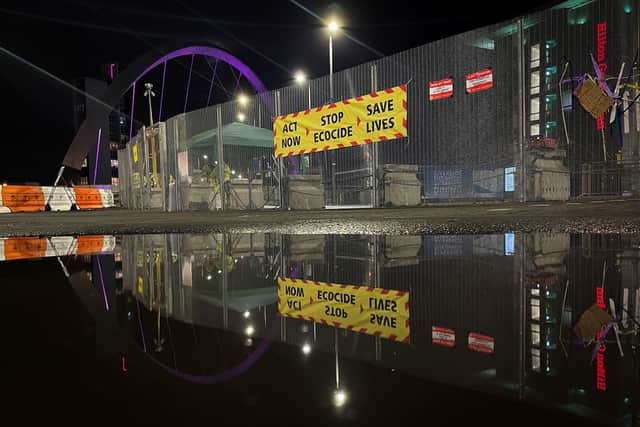COP26: Glasgow Climate Pact will go down in history, but is the end deal a COP-out?
The Glasgow Climate Pact is seen as the most significant climate change deal since the Paris Agreement was signed in 2016.
COP26 was the biggest event of its kind ever staged in Scotland, with around 25,000 leaders and delegates attending the talks and many thousands more descending on the city to make their voices heard in protest.
Advertisement
Hide AdAdvertisement
Hide AdThe stated aims of the conference were to secure global net zero by mid-century and keep 1.5C within reach, adapt to protect communities and natural habitats, mobilise finance, and work together to deliver the measures.


In the final text, agreed by nearly 200 countries, fossil fuels and a plan to cut coal were mentioned for the first time in the 25-year history of UN COPs.
The document also calls for bigger reductions in greenhouse gas emissions and pledges more money to help developing countries adapt to the changing climate.
But analysis suggests plans are not sufficient to limit global temperature rise to 1.5C above pre-industrial levels, a key aim of the Paris Agreement.
Projections suggest the world is on course to reach 2.4C of warming by the end of the century if promises in the Glasgow pact are carried out – down from the 2.7C predicted under pre-COP proposals.
Reactions to the deal have been mixed, though most acknowledge there is a lot more work to be done – urgently.
UN Framework Convention on Climate Change executive secretary Patricia Espinosa said: “We will be leaving Glasgow with clarity on the work we need to undertake to reach the 1.5C goal.”
For Prime Minister Boris Johnson, COP26 was a success tinged with “disappointment” over watered-down ambitions.
There has also been much more scathing analysis.
Advertisement
Hide AdAdvertisement
Hide AdTeenage climate activist Greta Thunberg described the conference as “a two-week-long celebration of business as usual and the blah, blah, blah”.
Climate justice campaigner Asad Rehman, from the COP26 Coalition, which organised the biggest protest of the conference, said: "This agreement is an utter betrayal of the people.
“It is hollow words on the climate emergency from the richest countries, with an utter disregard of science and justice.
“At COP26, the richest got what they came here for and the poorest leave with nothing.”
A message from the Editor:
Thank you for reading this article. We’re more reliant on your support than ever as the shift in consumer habits brought about by coronavirus impacts our advertisers.
If you haven’t already, please consider supporting our trusted, fact-checked journalism by taking out a digital subscription.
Comments
Want to join the conversation? Please or to comment on this article.
